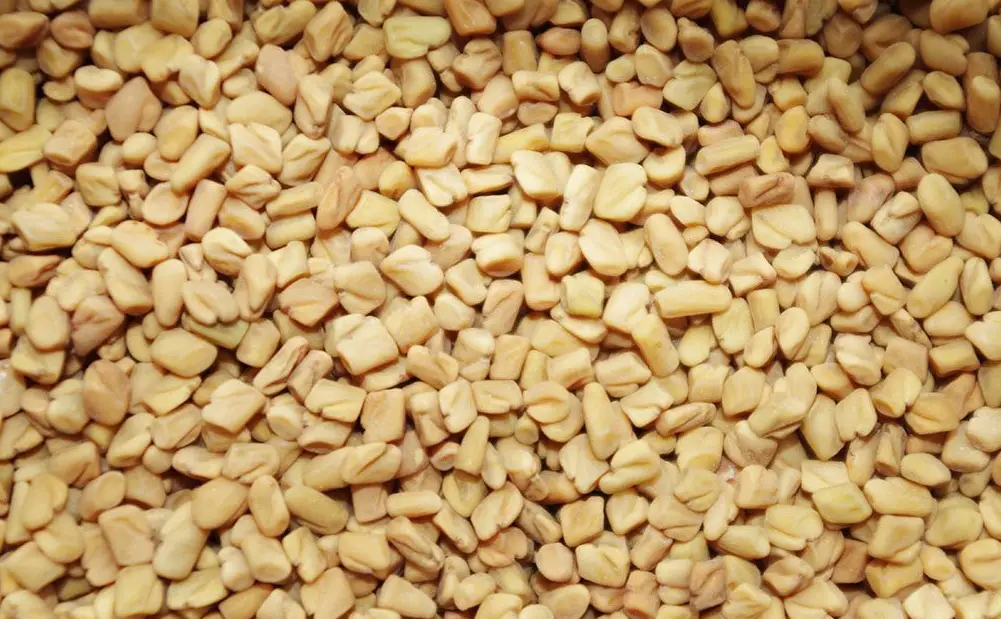
by Abdulsalam Yunusa | Nov 28, 2020 | Health & Wellness
From the age of puberty to that of menopause, a lot of ladies experience a monthly pain spanning over a few days associated with their menstrual period. This pain is generally known as menstrual cramps and medically as dysmenorrhea.
As a lady, menstruation occurs to prepare your body for a possible pregnancy. This leads to extra thickening of your uterus. If intercourse and fertilization do not occur, the extra thickening is no longer needed thus it will be shed as menstrual blood.
To ensure that this happens, the blood supply will be cut from reaching the extra thickened layer, thus depriving it of oxygen and other essential nutrients. Without blood, it will begin to die off and the body will respond by releasing some hormone-like substances known as prostaglandins.
This, together with the spasmodic movement of the uterus to expel the ‘unneeded’ extra uterine layer is the reason for the pain experienced especially in the first few days of menstruation.
What Can You Do to Get Rid of Menstrual Cramps?
A lot of ladies while experiencing period pains, rush to take Over-The-Counter drugs like Ibuprofen, Naproxen, Feldene and Diclofenac. While this will provide relief from the pain, its long term usage — especially without a prescription— is likely to do more harm than good. These drugs, known as NSAIDs (Nonsteroidal Anti-inflammatory Drugs), could lead to diseases like peptic ulcer, aggravate gastric bleeding, and cause indigestion, diarrhoea, heartburn among others.
Now that you know this, it will be wise to switch to natural methods that will provide relief from the cramps without exposing you to more diseases.
Menstrual Cramp Natural Remedies
While some of these menstrual cramp natural remedies are yet to be proven scientifically, a lot of ladies have attested to their effectiveness in getting relief. This includes:
1. Use of Heat
This is done by gently applying a heating pad over the area. You can do this locally by filling a bottle with hot water, wrapping the bottle in a piece of clean cloth then rubbing it gently on your lower abdominal area, and sometimes back and thighs. A hot water compress (using a piece of clothing) or hot shower can also be done.
There are also other ways of making a heating pad.
The heat helps to relax the spasmodic uterine muscles and also improves blood flow. This helps a lot with the pain. A lot of women that use this method have found it to be very effective in getting rid of menstrual cramps.
2. Hydration
Body water is sometimes lost through vomiting and diarrhoea during menstruation. The cramps can be made more severe as a result of dehydration. Therefore, taking enough water helps to reduce the symptoms and is generally good for the health.
NB: Alcohol consumption should be avoided because it also causes dehydration.
3. Exercise
While exercise is generally recommended due to its numerous health benefits, it is also one of the menstrual cramp natural remedies. Performing exercises especially a few days before the period and within the first few days of the period has proven to be helpful.
Yoga is also a good substitute.
4. Acupuncture
This age-long Asian practice has been recorded to help reduce body pain by calming the nervous system. The practice of puncturing certain areas of the skin (acupuncture) and applying pressure on certain parts of the body (acupressure), both helps to get relief from menstrual cramps.
It is recommended that one gets an expert first before going for this method.
5. Massage
Massaging the areas where the pain is felt, I.e. the lower abdominal area, thigh and lower back, is also helpful. This is because blood flow is improved and the muscle is relaxed.
Massaging the area by using essential oils like lavender is said to give better results.
6. Tea
Drinking warm tea has also proven to be helpful. However, the tea must be caffeine-free, because caffeine worsens the symptoms. Herbal tea is preferred due to the antispasmodic and anti-inflammatory effects of the herbs.
A good example is ginger and mint tea.
7. Choose What Foods to Eat As A Menstruating Woman
Foods rich in nutrients like Vitamins, calcium, magnesium, iron reduce bloating, ease the pain and replace nutrients lost during menstruation. Food rich in fibre is also recommended.
You need to avoid or reduce the intake of excess sugar, fats and salts as all these aggravate the symptoms. You should consult a dietician to design a suitable meal plan for you based on your financial strength.
Is there any other natural method you know of? Please do let us know in the comments section.

by Aeesha McOsei | Nov 25, 2020 | Personal Growth
Sometimes, we as humans burden ourselves with so much to do that we end up not being able to achieve much or do anything at all. Or we become demotivated and overwhelmed by the weight of what we need to accomplish. Becoming unproductive is not uncommon, and everyone has experienced it at least once.
Take these following steps in stride as they will help you in performing better and increasing your productivity.
How to Increase Productivity in 10 Ways
1. Start Your Day Right
Firstly, start your mornings well. I believe that your mornings determine how your day will be. An unenergetic morning may be one of the promoters of unproductivity. To increase productivity, you should gracefully start your day, putting yourself to a good start.
Getting adequate hours of sleep, sleeping in the correct position, reducing screen time before bed, etc. are some of the ways to get enough rest and wake up with a fresh start every day.
Try learning how to be a morning person if you are not one. You can also carve out a morning routine or ritual that fits into schedule and belief. A well-ordered morning will have a good impact on daily productivity than a rushed and undefined one.
2. Be Purposeful
Begin each day with a clear picture of what you want to achieve. A cleared path is easy to follow than a murky one. Being purposeful is not about your day alone but your life as a whole. You should seek your purpose continuously as you paddle through life, readjusting it as you go through different stages.
3. Set Timely Goals
In addition to being purposeful about your day, set goals. These can be long, mid, or short-term goals that resonate with the purpose you have set for yourself. Ensure that your targets are tailor-made for you and are achievable within the time frame.
4. Create a Realistic To-Do List
Do not, in the hunger to be more productive, make a list of things that is impossible for you to achieve. Doing this will worsen the situation and result in even less productivity. However, you should not make an unreasonably scanty to-do list when you can achieve more. A to-do list keeps you in check as to what your day-to-day life should revolve around.
5. Link Your Goals to the Items on Your To-Do List
Every item on your to-do list should have a connection to the bigger picture. For example, if your goal is to read more, then your to-do list should contain an item that makes that goal attainable. It can be reading a few pages per day or going out to get more books.
6. Ditch Procrastination
Procrastination is the thief of time. If you want to increase your productivity, you need to set fire to procrastination. Although most times misinterpreted as laziness, they are different. You can learn how to get rid of procrastination in these 7 easy steps. (link article)
7. Take Pauses
In case you’re unaware, you are not a machine. Even machines break down if they are used for long without stops. Learn to take pauses during work schedule as this will boost your productivity. Take a walk around the office, or a scheduled nap or game, etc. Nonetheless, be cautious of taking too long pauses that will take your mind off work and plunge you into another bout of unproductivity.
8. Stop Multitasking
When you do too many things at once, you tend to achieve less. You may get a false sense of doing many things, but you get too little done this way. Set your tasks in chronological order and take on each one at a time. Do this, and you will see how much more you achieve at the end.
9. Use the Reward System
Reward yourself when you achieve a goal or accompany a task. The reward should be in direct proportion to the goal achieved.
10. Be Fair to Yourself
Be fair when setting your purpose, your goals, and creating your to-do list. Do not push yourself to limits that you are unable to cope with. If you do this, you are setting yourself up to be less productive. Also, speak kindly to yourself when you are unable to finish a task in time or end up doing things outside your set goals.
Conclusion
You are only human, and humans are meant to falter. It is equally important that you do not, because of one slip out, ditch your whole plan. Pick yourself up and keep going even after you slip. Nobody figures it all out in one day.

by Abdulsalam Yunusa | Nov 20, 2020 | Health & Wellness
The liver is the largest organ of the human body and is said to be the most metabolically active as well. its diverse functions are very important in maintaining normal function of the body, therefore a disorder of the liver can cause serious problems to the whole body and can even lead to death.
Read: Best Foods That Increase Metabolism.
Inflammation of the liver is known as hepatitis, Hep. It can be caused by several factors, some of which can be prevented by vaccination and good personal hygiene.
According to the World Health Organization, about 1.4 million people die from viral hepatitis globally on a yearly basis. 90% of this is from Hep B and C, while the remaining 10% are as a result of other forms of viral hepatitis. Nigeria has a prevalence of 8.1% for Hep C and 1.1% for Hep B ()
HepB is the most common cause of chronic liver disease in Nigeria. This is most likely because of the poor rate of vaccination, little awareness about the disease and high rate of exposure to it.
During the 2020 World Hepatitis Day observed in Nigeria, the Minister of Health stated that about 20 million people out of the approximately 200 million people in the country are chronically infected with hepatitis. This indeed is a reason to be concerned and proactive in preventing the spread of the disease.
Types of Hepatitis
Hepatitis can be classified as viral and non-viral. When health professionals speak about hepatitis, they are usually referring to the ones caused by some identified viruses; these are Hep A, B, C, D, and E. Research have shown that there are also F and G.
Non-viral ones could be caused by excess alcohol consumption, drugs, toxins, other diseases and even autoimmune factors.
Causes of Hepatitis
As mentioned above, there are several types and each has a different cause. Below are some of the causes:
Hepatitis A
It is caused by the HepA virus. Hepatitis is acute (symptoms develop in a very short time) and just like other viral infections, it is infectious I.e. it can be spread from one person to another. It is most commonly transmitted by consuming food and/or water contaminated by the faeces of an infected person.
This is possible when good hand washing habits are not maintained especially after using the toilet.
Hepatitis B
This is caused by coming in contact with the body fluids of people infected with the HepB virus. It is transmitted through unprotected sexual intercourse, blood transfusion, sharing of needles/razors/toothbrushes, tattooing, body piercing among others.
Unlike HepA, HepC infection is chronic. This infection if left untreated or poorly treated, could lead to other liver diseases like cancer, cirrhosis (scarring) and liver failure.
Hepatitis C
It is caused by the HepC virus. Its mode of transmission is similar to that of HepB, and it is chronic as well. As a result of its chronic nature, the infected liver will be exposed to other diseases.
Hepatitis D
Hepatitis D is caused by coming in direct contact with blood infected with the HepD virus. This type is rare because the virus can only survive when there is s preexisting HepB infection.
his makes it very serious and difficult to treat.
Hepatitis E
The virus causing this infection, the HepE virus, is mostly found in water contaminated with faecal matter, this is why it is more common in underdeveloped cities and nations.
Autoimmune Hepatitis
This is not common and its cause is not clearly known, but it is believed to be associated with other autoimmune disorders. In this case, the immune system which is actually responsible for protecting the body against infections will turn around and attack the body cells and organs — including the liver.
Symptoms of Hepatitis
As mentioned earlier, the liver has diverse functions. This includes removal of toxic substances from the body, production of bile needed for digestion, production of somebody proteins (e.g Albumin). Therefore, an infection to the liver will affect these functions and lead to the manifestation of some of the following symptoms:
Yellowing of the skin and eyes; a condition known as jaundice.
Abdominal pain
Fatigue
Fever
Diarrhoea
Loss of appetite
Nausea and vomiting Etc.
How Do You Treat Hepatitis
While HepD and E currently have no specific treatment, other types can be considerably treated.
Hepatitis A
Patients infected with the HepA virus usually do not need medication because the infection resolves on its own. A good diet rich in protein and carbohydrates helps to repair damaged liver cells.
Patients are also advised to avoid alcohol and any drug that can worsen the condition and slow the healing.
Hepatitis B and C
Both can be treated with antiviral medication. Though this treatment is expensive and might have to be continued for a long duration.
Autoimmune hepatitis
Since this type is caused when the immune system begins to attack the liver, it is treated by using drugs that will suppress the activity of the immune system along with other drugs that will repair the damaged liver cells.
Prevention
Now that we know how dangerous hepatitis can be, it is important that we know how to protect ourselves from this monster of a disease. This can be done by doing the following:
Getting vaccinated against HepA and HepB
Maintaining good personal hygiene of handwashing after using the toilet and before handling food.
Avoid sharing needles, razors, other sharp objects and toothbrushes
Avoid having a blood transfusion in unclean places
Stay away from promiscuous and unprotected sexual intercourse
Always use protective clothing and equipment while treating patients or performing first aid
Reduce alcohol consumption or avoid it completely
Always consult with qualified health professionals before taking medications
Conclusion
Please help spread the message by sharing this with your family and friends to prevent this disease. Also, Send in your questions via the comment box below.

by Maryam Idris Bappa | Nov 4, 2020 | Health & Wellness
Fenugreek is an annual herb that belongs to the Fabaceae family, the same family as soy. It is a leafy green legume native to Eurasia and Africa that is widely used for its nutritional and aromatic value, with India reported to account for its major products throughout the world.
The leaves of Fenugreek are rich in folic acid, vitamin A, vitamin C, and vitamin K. It is also a storehouse of minerals such as potassium, calcium, and iron. Adding fenugreek to your diet in the required dosage is safe and provides beneficial nutrients, mucilage, and fibre. The benefits of this herb are so much that many are yet to be scientifically proven. For instance, fenugreek is used for beauty and health purposes all around the world.
Below are 16 benefits of fenugreek which can be obtained from its seeds and leaves.
Benefits of Fenugreek
1. Fenugreek Is Good for the Skin
Salicylic acid present in fenugreek helps to unclogs pores while potassium, carotene, and vitamin C in the seeds boost skin elasticity. The oil made from the seeds which contain mucilage help in moisturizing, softening, and hydrating skin without irritating it.
Apply the paste made from fenugreek leaves preferably at night to prevent a fresh breakout of acne. You can also apply fenugreek oil directly to the skin.
2. It Is Important For the Hair
Fenugreek seeds and leaves contain a variety of nutrients that promote hair growth as well as prevent dandruff. The paste made from the leaves promotes and preserves the natural hair colour and silky texture. Due to the high mucilage content of fenugreek seeds, it possesses hair conditioning properties that can treat dry scalp by moisturizing it.
Apply Fenugreek leaf paste to the scalp and rinse with water to improve your hair quality. Also, blend the seeds of fenugreek into powder, add into a hair mask or a conditioner in order to accentuate its benefits and soften hair.
3. Fenugreek Can be Used as a Spice
The fresh and dried seeds of this plant have been used as a spice and flavouring agent for ages. The seeds have been described to have a natural sweet nutty flavour like maple syrup or burnt sugar. Fenugreek seeds when combined with other spices will give your saucy dishes a certain sweetness and flavour.
In addition, throw in fenugreek powder to your fry or add it to your soup to obtain its unique flavour.
4. The Plant Aids Digestion and Relieve Constipation
One of the benefits of fenugreek is that it aids digestion and relieves constipation. Fenugreek can improve digestion and prevents stomach disorders by acting as a laxative.
This is typical of foods containing large amounts of soluble fibre known as bulk-forming laxatives. When fenugreek seeds absorb water in the intestines, they expand and the volume increases. This will trigger a reflex muscular contraction in response to this pressure, thereby stimulating bowel movement. However, mucilage contained in fenugreek seeds when ingested will soften the mucus membranes to ease constipation.
Take fenugreek tea or drink water in which fenugreek seeds have been soaked to ease digestion. You can also mix about a teaspoon of fenugreek powder in a cup of water strain and drink it up.
5. Fenugreek Helps Fights Inflammation
Certain acids and substantial levels of antioxidants in fenugreek seeds make it a good anti-inflammation agent. Mucilage extracted from its seeds also contributes to its anti-inflammatory properties.
Use fenugreek seed oil extract on inflamed places directly on the skin to ease inflammation.
6. Do you Know Fenugreek Treats Heartburn
One of the benefits of fenugreek is that it treats heartburn cases. Fenugreek is an effective treatment for gastritis. More so, it reduces the severity of heartburn by forming a shield over the intestinal lining to soothe gastrointestinal inflammation and prevent heartburn.
In addition, intake of a fenugreek fibre product, 30 minutes before two meals in a day will reduce the severity of heartburn.
7. It Helps with Weight Loss
Fenugreek contains fibre that promotes a feeling of fullness and keeps people from overeating. If you want to lose weight, adding fenugreek seeds to your diet is a must. Furthermore, fenugreek seeds aid in reducing fat accumulation and enhance the metabolism of lipids and glucose which help in weight loss.
That is to say, fenugreek will help with energy extraction and also increase overall energy consumption. Therefore, it is going to increase calories burned daily and thus, increase weight loss
Chew fenugreek seeds twice or thrice a day to promote a feeling of fullness and satiation without having to eat much.
8. Fenugreek Also Helps with Weight Gain
Although fenugreek seeds in themselves do not make you gain weight they can boost your appetite. Also, with the intake of the right foods, fenugreek makes you gain weight. Furthermore, taking fenugreek seeds with a glass of water will help in absorbing the saponins found in fenugreek, which will increase your appetite.
More so, take a total of four teaspoons daily of ground fenugreek seeds or otherwise known as fenugreek powder with two cups of water after having some bites of bread or an apple. Then eat foods that are rich in calories and nutrients rather than fat.
This will help you gain healthy weight.
9. An Important Benefit of Fenugreek It Improves Breast Milk Production
More so, one of the benefits of fenugreek is that it increases breast milk production. Fenugreek may help stimulate milk production and flow in lactating mothers. Women use the seed to increase their breast milk production across Asia. This herb also contains phytoestrogen that boosts milk production in lactating mothers.
Moreover, drinking fenugreek tea seems to increase the supply of breast milk in mothers, which also promotes weight gain in infants.
10. Fenugreek Also Increase Breast Size
Fenugreek contains Phyto oestrogen which builds the level of prolactin in your body and also helps increase the size of your breasts by encouraging the development of breast tissue. Massage your breasts daily with warm water which has been brought to a boil with fenugreek powder.
You can also apply the oil on the breast directly and firm it up with a bra for better effect.
11. Acts As an Aphrodisiac for Men and Women
Fenugreek was one of the foods used as aphrodisiacs by ancient people in Rome, Egypt, and Greek. It has been used as an aphrodisiac used for centuries by men and women to increase sex drive. This is because the herb contains compounds that the body can use to make sex hormones like oestrogen and progesterone.
Fenugreek also boosts testosterone levels, a hormone that plays a vital role in many bodily functions in males.
12. Fenugreek Alleviate Menstrual Cramps
In addition, fenugreek seeds have anti-inflammatory and analgesic properties. Ingesting fenugreek seed powder reduces pain associated with menstrual cramps and other symptoms such as fatigue, headache, and nausea.
This is one of the numerous benefits of fenugreek.
13. It Also Serves as Remedy for Fever and Sore Throat
The mucilage found in fenugreek seeds has a soothing effect on the throat. The seeds are said to provide relief for fever when taken with a tablespoon of lemon and honey.
14. Fenugreek Also Lowers Cholesterol Level
Fenugreek seeds are rich sources of steroidal saponins which intercept the absorption of cholesterol and triglycerides. The seeds discourage the production of cholesterol in the liver and stimulate the production of good cholesterol.
15. You Can Use Fenugreek to Treat Diabtes
The fibre in fenugreek forms a thick and sticky gel in the intestine, which makes it harder to digest excess sugars and bad fats. In addition, fenugreek seeds help control blood sugar and decrease insulin resistance.
Aiding diabetes treatment is definitely one of the benefits of fenugreek.
16. This Herb Reduces Aluminum Toxicity
Furthermore, fenugreek seed powder reduces aluminium toxicity by offering protection to the brain, bones, and kidneys.
Conclusion
Side effects of ingesting fenugreek may include diarrhoea, stomach upset, and other allergic reactions. People with chronic health conditions or lactating women should speak with a doctor before ingesting Fenugreek supplements.




